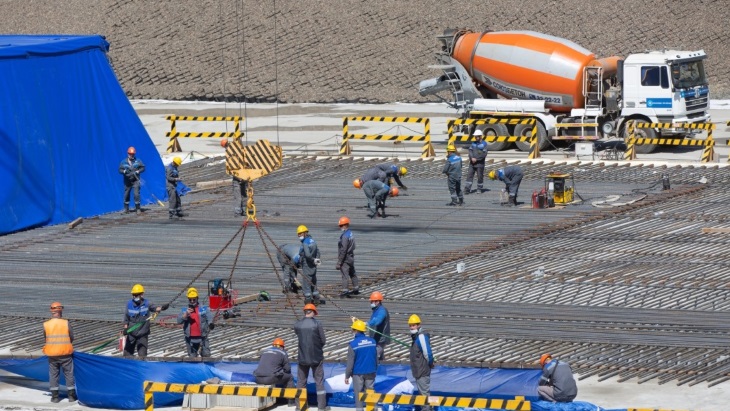Russia has begun construction on the world’s first fast neutron reactor that will be a next-generation energy unit at the Siberian Chemical Combine in Seversk. The BREST-OD-300, a 300 MW nuclear reactor will feature a lead-cooled fast reactor and is included in what Rosatom calls a Pilot Demonstration Energy Complex (PDEC). It has been claimed to be a project that will provide a source of fuel for nuclear power that is “practically inexhaustible” because the fuel could be reprocessed, helping solve the problem of what to do with the spent nuclear fuel. The plant will run on a mix of uranium-plutonium nitride fuel (MNUP).
Also Read:5 wind power projects in Russia to generate 226Mw of power
Rosatom, the company in charge of construction stated that uranium-plutonium nitride fuel is “considered to be the optimal solution for fast reactors.” The PDEC is a group of three interconnected facilities. It includes a nuclear fuel production plant for fabrication and refabrication, along with the nuclear power unit, and a facility for irradiated fuel processing. The Siberian Chemical Combine is a facility operated by a Rosatom subsidiary, TVEL Fuel Co. The Pilot Demonstration Energy Complex at the site is part of what Rosatom calls its Proryv project, or “Breakthrough” project which the company said is working to develop “a new technological platform for the nuclear industry.”
“The implementation of the Proryv project embraces not just the development of innovative reactors, but also the introduction of the new generation technologies of the nuclear fuel cycle. Firstly, this includes the production of dense nitride MNUP fuel, which will ensure the efficient operation of a lead-cooled fast reactor and consist entirely of recycled nuclear materials such as plutonium and depleted uranium. Secondly, this means more efficient and economically attractive radiochemical technologies for the processing of irradiated fuel and waste management, which, taken together, will make the nuclear power of the future, in fact, renewable with a practically waste-free production chain.” said Natalia Nikipelova, president of TVEL Fuel.
85%
